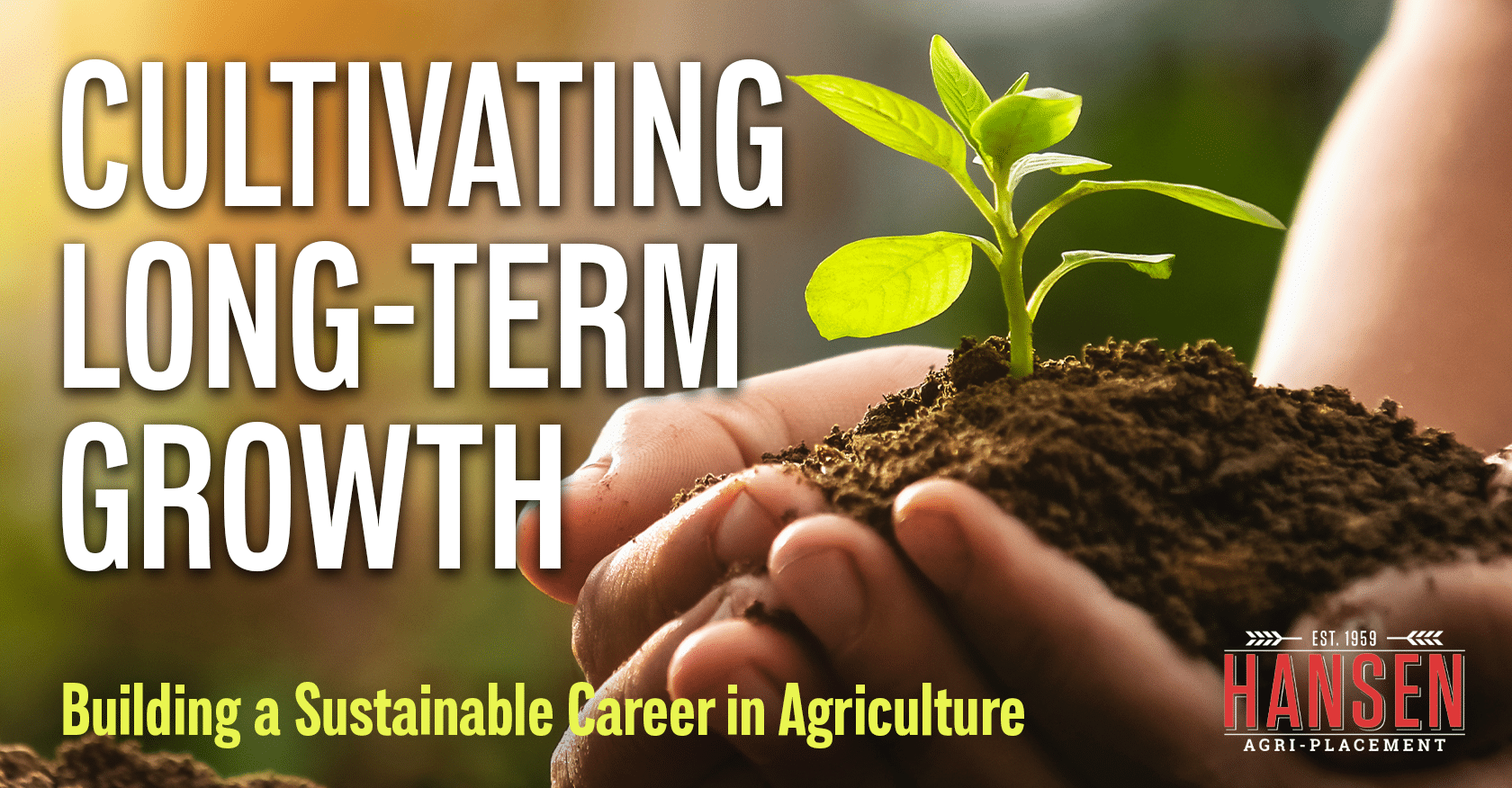
Building a sustainable career in agriculture is possible and highly rewarding in the industry’s ever-evolving landscape. Agriculture offers a multitude of career paths that align with the industry’s dynamic nature, technological advancements, and the global demand for food and sustainability. Whether you’re just starting your journey in agriculture or looking to elevate your existing career, here’s how to cultivate a sustainable and thriving career in this vital sector.
1. Embrace Technological Advancements
Agriculture has witnessed a technology-driven revolution in recent years. Embracing these innovations is essential for career growth. Stay updated on precision farming technologies, data analytics, and automation systems. Proficiency in these areas can open doors to roles in precision agriculture, agtech development, and agricultural consulting.
2. Specialize in a Niche
While agriculture is a broad field, specializing in a specific niche can lead you to expertise and career advancement. Consider focusing on organic farming, sustainable agriculture, agribusiness management, or crop genetics. Specialization makes you a sought-after professional and allows you to contribute meaningfully to the industry.
3. Pursue Higher Education
Advancing your education can significantly boost your agricultural career. Consider pursuing a master’s degree or certification in agronomy, agricultural economics, or agricultural engineering. Higher education can qualify you for leadership positions, research roles, and academia.
4. Explore Agricultural Research
Agricultural research improves farming practices, crop yields, and sustainability. If you have a passion for discovery and innovation, consider a career in agricultural research. Positions in research institutions, universities, or private agricultural companies offer opportunities to drive positive change in the industry.
5. Network and Collaborate
Building a solid professional network is essential in agriculture. Attend industry conferences, join agricultural associations, and participate in local farming communities. Networking can lead to job opportunities, collaborations, and partnerships that foster career growth.
6. Stay Informed About Global Trends
Global trends, such as climate change, sustainability, and food security, significantly impact agriculture. Stay informed about these issues and how they influence the industry. Professionals who understand and address these challenges are well-positioned for leadership roles.
7. Consider Entrepreneurship
Whether you aspire to start your farm, agribusiness, or tech startup, entrepreneurship is a viable path in agriculture. Entrepreneurial ventures offer opportunities for innovation, growth, and the chance to impact the industry significantly.
8. Advocate for Sustainability
Sustainability is a driving force in modern agriculture. Advocate for sustainable farming practices and environmental stewardship. Sustainability-related positions, such as sustainability coordinator or consultant, are in high demand as agriculture seeks eco-friendly solutions.
9. Adapt and Learn Continuously
The agricultural landscape is dynamic, with evolving challenges and opportunities. Embrace change and adopt a mindset of continuous learning. Flexibility and adaptability are valuable traits in a sustainable agricultural career.
10. Seek Mentorship
Mentorship from experienced professionals can provide valuable guidance and insights. Consider seeking a mentor within your chosen niche or area of interest. Their expertise and advice can accelerate your career growth.
Agriculture offers a vast, dynamic career landscape with ample long-term growth and sustainability opportunities. By embracing technology, specializing, pursuing education, networking, and staying informed, you can cultivate a thriving and meaningful career in this essential industry. Your journey in agriculture is not just a job; it’s a lifelong commitment to feeding the world and nurturing the planet.
